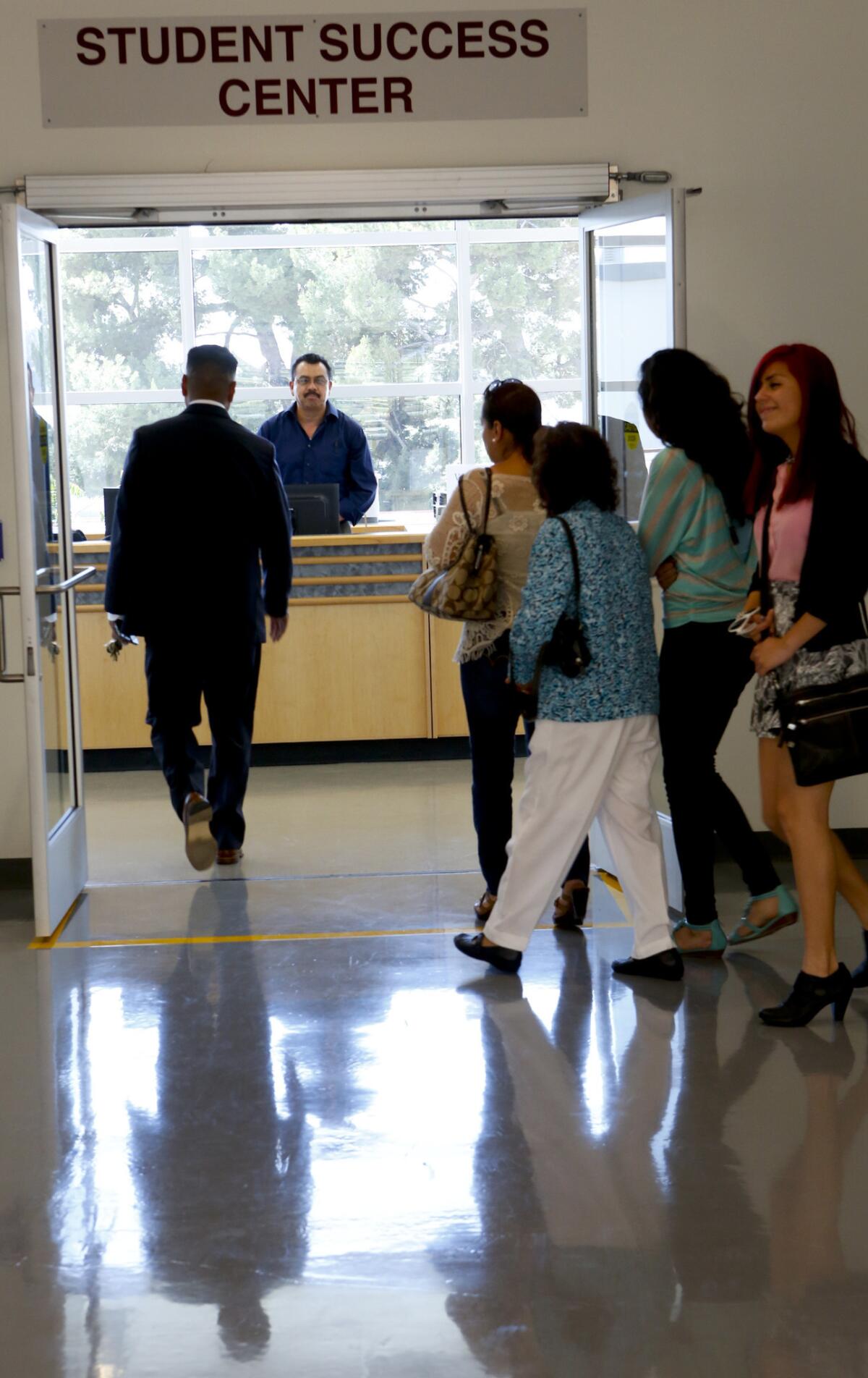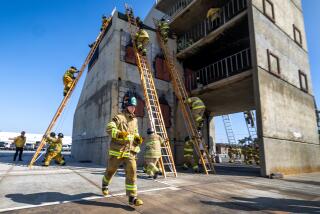More students take online classes but passage rates low, study says

- Share via
More California community college students are taking online courses than a decade ago, but fewer are completing and passing those classes compared with traditional ones, according to a study released Wednesday.
Overall, enrollment in online community college courses grew by almost 1 million classes between 2002 and 2012, according to the study, conducted by the nonprofit Public Policy Institute of California. The group studied six years of data, including grades and course enrollment, from the state’s 112 two-year colleges, which make up the largest two-year college system in the country.
In 2012, about 60% of students enrolled in online courses finished with a passing grade, about 10 percentage points fewer than the number of students who successfully completed traditional classes, according to the study. Some racial minorities also did worse in online classes than their white and Asian counterparts.
“We do see the achievement gap exacerbated in the online setting,” said Hans Johnson, one of the study’s authors.
Yet students who take online courses are more likely to finish their two-year degree or transfer to a four-year college, the study found.
Overall, about 20% of all community college students took at least one online course in 2012. The study found that almost a third of enrollment in business and information technology courses is online while about 2% of remedial math and English courses are available on the Internet.
While the percentage of minorities who enroll in online courses is growing, the percentage of Latinos is substantially smaller than that of other ethnic groups, probably because they have less access to high-speed Internet at home, according to the study.
Students under age 25, Latinos, blacks and part-time students or those who needed remedial courses all performed worse in online classes than other groups, according to the report.
Gov. Jerry Brown and other educational leaders have advocated that public universities explore ways to increase their number of online offerings, and Johnson said policymakers need to understand why some students do worse in Internet classes than others.
“We have to be mindful about how to proceed,” Johnson said.
More to Read
Sign up for Essential California
The most important California stories and recommendations in your inbox every morning.
You may occasionally receive promotional content from the Los Angeles Times.














